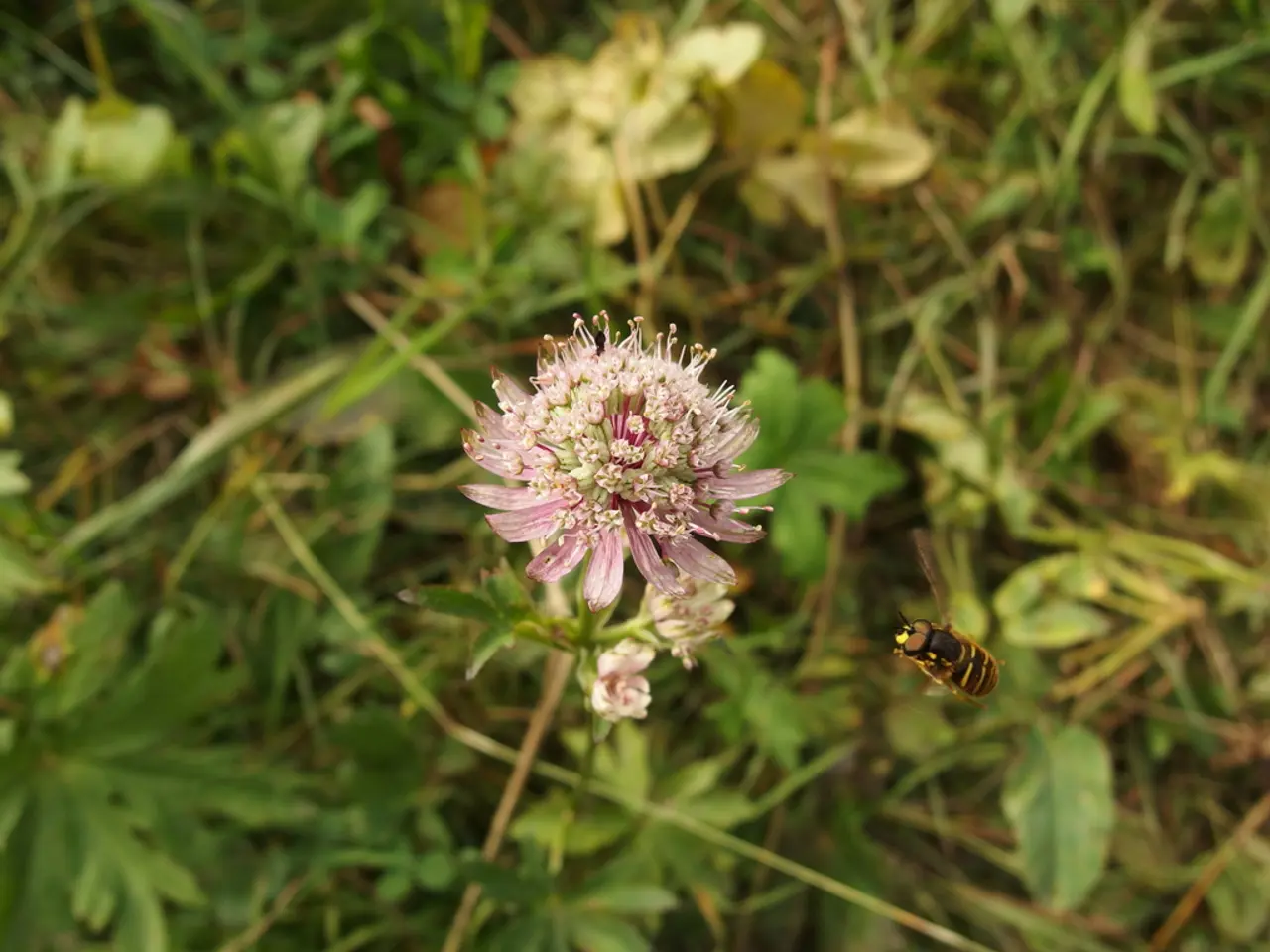Summer Garden Pest Control Methods Using Organic Materials
In the vibrant world of summer vegetable gardens, pests can pose a significant challenge. However, fear not, for there are numerous organic solutions at your disposal.
One such solution is companion planting. Marigolds, for instance, emit limonene, a compound that masks plant odors, reducing pests such as whiteflies. Plant them early and densely for best results, especially in enclosed environments like greenhouses. Marigolds are also great companions for tomatoes, deterring nematodes and aphids. Basil, on the other hand, is a good companion for peppers, as it repels flies and mosquitoes. Chives are beneficial for carrots, deterring carrot flies. Nasturtiums, when planted near cucumbers and related crops, act as a trap crop, diverting pests.
Another effective method is handpicking pests and physical barriers. For pests like cabbage worms and cucumber beetles, physically removing larvae or beetles and using floating row covers or netting prevents egg-laying and protects plants.
Natural sprays and neem oil are eco-friendly alternatives to chemical insecticides. Neem oil, for example, disrupts pest lifecycles without harming beneficial insects. Sprays that kill pests on contact can be effective, followed by washing plants to remove dead insects.
Trap cropping and mulching are also useful techniques. Mulching with straw prevents soil splash, minimizing disease spread, and keeps foliage dry, indirectly reducing pest problems. Planting nasturtiums near cucumbers and related crops acts as a trap crop to divert pests.
Regular monitoring and soil health are crucial. Keeping soil healthy through organic amendments strengthens plant resistance. Netting combined with good cultural practices is particularly useful for brassicas and other vulnerable crops.
Signs of pests in summer gardens include webbing on the undersides of leaves (indicating spider mites), discoloration (yellow or brown spots), and wilting leaves. Look for eggs on leaves, as some pests lay eggs on leaves in summer gardens. Using soap spray (1 tablespoon of liquid soap with a quart of water) helps control soft-bodied insects like aphids and spider mites. Garlic spray, made by blending garlic with water and letting it steep overnight, can repel a variety of pests when sprayed on plants.
Essential oils like peppermint or tea tree oil can be mixed with water and sprayed around the garden to deter pests. Neem Oil diluted with water and sprayed on plants disrupts the life cycle of pests, making it harder for them to thrive.
By choosing plants that benefit each other, rotating crops each season, and keeping an eye on pest populations, a healthy environment can be created where plants can flourish. Using organic insecticides reduces chemical exposure, providing a safer environment for families. These strategies minimize chemical use while protecting crops in summer conditions by leveraging natural plant properties, physical removal, and eco-friendly treatments. Combining multiple approaches tailored to specific pests offers the most effective organic pest control.
In conclusion, with a bit of planning, careful observation, and the use of organic solutions, you can maintain a thriving summer vegetable garden while keeping pests at bay. Happy gardening!
[1] Hemenway, T. (2013). The Leafy Spurge Handbook: Biology, Identification, and Control. USDA Forest Service. [2] National Gardening Association. (n.d.). Companion Planting. Retrieved from https://www.garden.org/topics/companion-planting/ [3] PennState Extension. (2019). Organic Pest Management. Retrieved from https://extension.psu.edu/organic-pest-management [4] Rodale's Organic Life. (2019). Neem Oil: A Natural Insecticide for Your Garden. Retrieved from https://www.rodalesorganiclife.com/garden/neem-oil-natural-insecticide [5] University of California Agriculture and Natural Resources. (2019). Organic Pest Management: A Guide for Gardeners and Farmers. Retrieved from https://anrcatalog.ucanr.edu/Details.aspx?itemNo=8277
Implementing an environmentally friendly lifestyle in your home-and-garden can help promote a healthier environment for your summer vegetable garden. Utilizing organic solutions like companion planting, natural sprays, essential oils, and handpicking pests can not only help control pests but also strengthen plant resistance and minimize chemical exposure. For instance, planting marigolds, basil, chives, and nasturtiums, as well as maintaining healthy soil and monitoring pest populations, can create a harmonious ecosystem that supports the growth of your plants. By following these practices and combining multiple organic solutions tailored to specific pests, you'll be able to maintain a thriving summer vegetable garden while protecting the environment.




